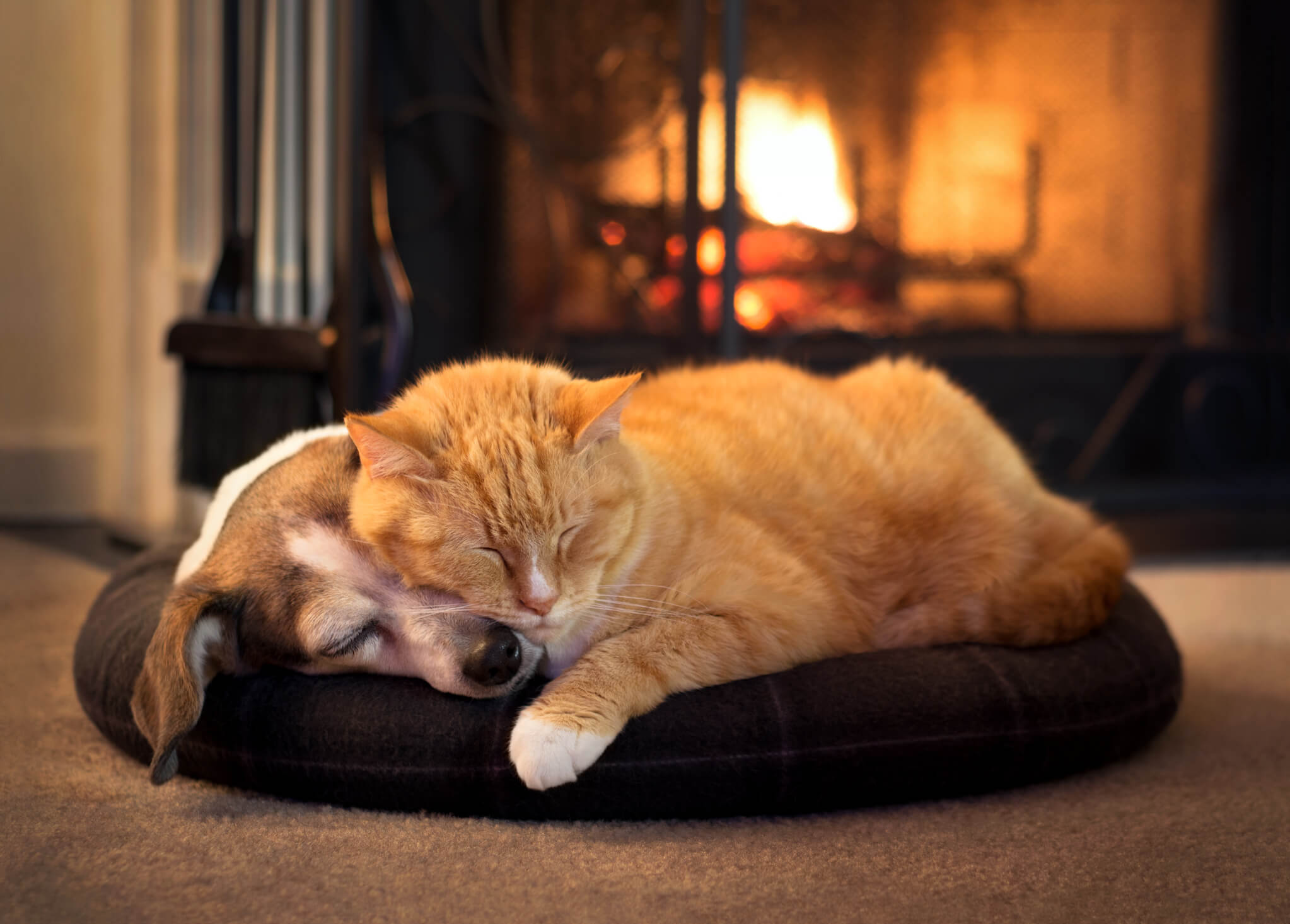
Can Pets Experience Seasonal Depression?
When the winter blues start affecting humans, pet parents often ask, “Can my pet experience seasonal depression, too?” The short answer is maybe.
The jury is still out on whether pets experience seasonal depression just like their human companions. But since low energy and mood changes are more common in winter, seasonal depression is a real possibility among our four-legged family members. Here’s everything we know so far about “SAD” pets and how owners can promote a sunny disposition during the darkest days of the year.
More research is needed on SAD
Many owners are convinced their pets experience seasonal affective disorder (SAD) during the cold months. The truth is, there’s not enough research to conclude whether SAD is a diagnosable illness in cats and dogs. Researchers still aren’t sure how to tell if a pet is depressed and to what extent. Reports of SAD in pets are subjective and based on the owners’ interpretation of how their pet’s behavior changes in winter.
While studies are limited, researchers suspect that cats and dogs might be capable of experiencing seasonal depression. Humans and pets share a similar brain chemistry that changes depending on the amount of daylight we get each day. As the days grow shorter, melatonin production increases while serotonin decreases. Melatonin makes us sleepy, and less serotonin puts a damper on our mood. Due to our shared brain chemistry, it wouldn’t surprise owners to learn that pets become depressed in winter, too!
One study conducted on hamsters and grass rats proved these rodents are capable of becoming depressed when they have limited access to sunlight. Results showed the hippocampus, a portion of the brain, shrank in response to less sun exposure. A shrunken hippocampus has been linked to depression. Researchers have yet to conduct the study on dogs, but current data says it’s very possible for animals to experience seasonal depression.
Common signs of SAD in pets
Researchers don’t know if SAD is actually a thing in pets. However, there’s no denying the SAD-like symptoms that appear in our furry companions during the darker months. Your pet might have seasonal depression if they experience any of the following symptoms.
- Lack of appetite
- Excessive weight loss
- Low energy levels
- Irritability or aggression
- No interest in exercise
- Increased sleepiness
Why pets might seem depressed in winter
One possible explanation for a pet’s depressed behavior is their tendency to mirror human moods. If an owner is depressed, their pet will likely feel that way, as well. Pet parents who have been diagnosed with SAD may see signs of seasonal depression in their four-legged companions. The pet is simply reflecting their owner’s mood, which doesn’t necessarily mean they experience the disorder, too.
Additionally, what appears to be a case of SAD might just be plain old boredom! Owners are less willing to brave the cold, which means pets spend a lot more time cooped up indoors during winter. This usually means they’re getting less exercise and mental stimulation. Drastic changes in behavior could indicate your dog or outdoor cat misses exploring their outdoor environment.
Tips for improving your pet’s mood
SAD isn’t a recognized illness in pets, so there’s no official treatment. However, there’s still plenty you can do to lift your fur baby’s spirits! Here are some dietary and lifestyle changes that may help dissipate symptoms of seasonal depression in pets.
- Spend time outside: Dogs need space to run and play! Schedule a daily walk during peak hours of the day to gain maximum sun exposure. Embrace the cold by playing a game of fetch with snowballs. Give your local dog park a visit, even if it’s for a short amount of time. You’ll see your dog’s spirits perk up right away!
- Put their bed next to a window: Sometimes it’s too cold outside, even for our furry friends. Cats and dogs can still get sunlight indoors by sitting next to a window. When the days grow short, move their bedding in front of an east- or west-facing window to increase the amount of natural light in their lounge space.
- Give them a probiotic supplement: The gut and brain are closely related to each other. A healthy gut equals a healthy mind! Owners might be able to improve their pet’s mood by increasing the population of friendly bacteria in their gut microbiomes. A daily probiotic supplement supports healthy digestion and may, in turn, dispel abnormal changes in behavior.
While the dark months feel like a drag, remember that winter won’t last forever. In the meantime, soak up as many rays as you can and stick to a consistent exercise schedule. Plan winter activities that are beneficial for both you and your pet, especially if you feel a bit glum this time of year. Summer will be here before you know it!



